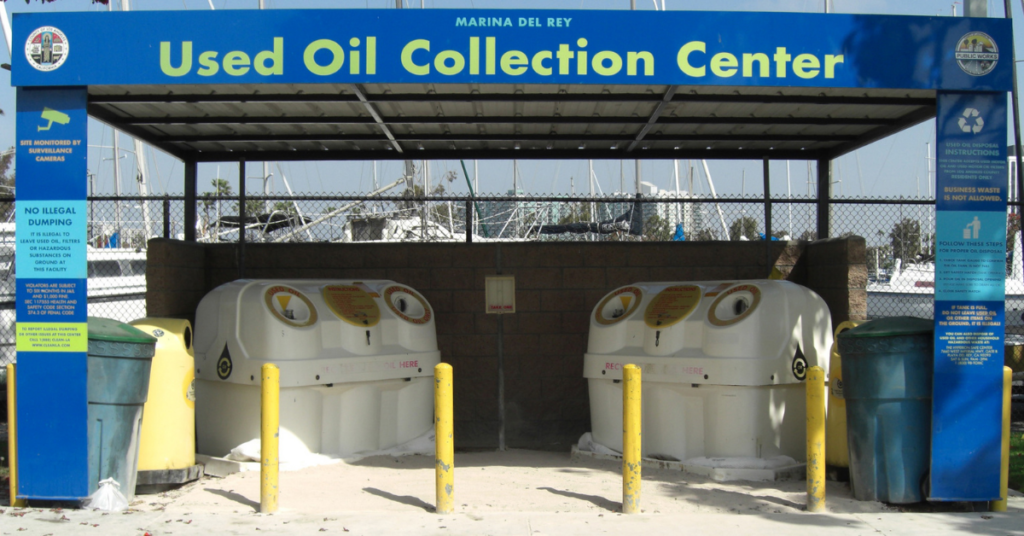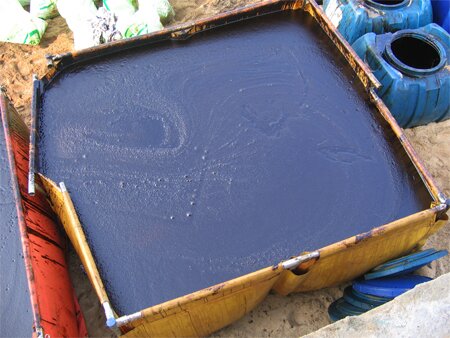Reliable and Timely Waste Oil Collection for Commercial Applications
Check Out Comprehensive Oil Collection Services to Guarantee Safe Oil Waste Disposal
The effective administration of oil waste disposal is increasingly essential in today's industrial landscape, where ecological compliance and sustainability are extremely important. The implications of these selections extend past mere compliance-- what unpredicted benefits might arise from a strategic collaboration in oil waste management?
Value of Oil Garbage Disposal
The value of oil waste disposal can not be overemphasized, as inappropriate handling of oil waste positions substantial risks to both the atmosphere and public wellness. Oil waste, which can originate from different resources such as auto maintenance, commercial procedures, and oil drilling, includes dangerous contaminants that can leach into dirt and rivers. This contamination endangers wildlife and interrupts ecological communities. When oil waste is poorly disposed of, it can lead to hazardous situations, including fires and explosions.
Effective oil waste disposal is vital for keeping ecological honesty and making certain conformity with governing demands. Governments and environmental firms have executed rigorous laws regulating oil waste monitoring to decrease the threats related to incorrect disposal. Facilities and companies that generate oil waste must take on liable disposal methods to reduce potential injury.
By focusing on appropriate oil waste disposal approaches, companies not just safeguard the setting and public health however also protect their economic interests and online reputation. Ultimately, a positive approach to oil waste disposal is vital for lasting practices in different sectors.
Kinds Of Oil Collection Services
Reliable oil garbage disposal counts greatly on the schedule of specialized oil collection solutions customized to satisfy the diverse needs of various industries. These solutions can be classified right into a number of types, each designed to address specific needs and functional contexts.
First of all, mobile oil collection services are popular for their flexibility, permitting firms to arrange pick-ups at their benefit. oil recovery services. These services often use customized automobiles geared up to handle numerous kinds of oil waste, ensuring secure and effective transportation to disposal centers
Second of all, on-site oil collection services provide an even more long-term solution for organizations producing significant quantities of oil waste. These services typically entail the setup of marked collection containers at the customer's location, promoting routine waste monitoring and lessening the risk of spills.
In addition, some companies supply emergency oil collection solutions, which are vital for addressing unexpected spills or leakages promptly. These services alleviate environmental risks and make certain conformity with regulative criteria.
Lastly, customized collection programs can be developed to meet the one-of-a-kind needs of certain sectors, such as vehicle, manufacturing, and food production. This modification enhances the efficiency of oil waste monitoring strategies across numerous industries.
Environmental Advantages of Recycling
Reusing oil waste offers considerable ecological advantages that contribute to sustainability and resource preservation. Among the primary advantages is the reduction of contaminated materials, as poorly disposed oil can pollute dirt and water resources, posturing serious dangers to ecological communities and human health. oil recovery services. Through recycling, oil is processed and repurposed, lessening its unsafe effects on the environment
Additionally, recycling oil saves natural deposits by lowering the need for virgin petroleum extraction. The re-refining process enables the recovery of premium base oil, which can be recycled in many applications, therefore reducing the need for brand-new resources. This not only protects important natural reserves but also lowers greenhouse gas emissions related to oil extraction and refining.
Moreover, reusing oil waste adds to power effectiveness. The energy required to recycle used oil is significantly much less than that required to create new oil from basic materials. This efficiency brings about lowered carbon impacts and supports climate adjustment reduction efforts.
Choosing the Right Provider

When reviewing prospective providers, it is crucial to consider their credentials and conformity with local, state, and government policies. A reputable solution should possess the essential licenses and accreditations, showing their capability to take care of dangerous products responsibly. Ask concerning their experience within the industry; suppliers with a long-lasting track record are typically extra dependable and experienced concerning ideal practices.
Evaluate the variety of solutions supplied, including collection schedules, storage options, and reusing procedures. A provider that tailors their offerings to meet your particular requirements can improve functional effectiveness. In navigate to this site addition, consider their dedication to sustainability; a liable provider will prioritize eco-friendly practices and actively look for means to decrease waste.
Actions for Safe Oil Disposal

When the oil is securely kept, engage an accredited oil collection service copyright. This expert will certainly guarantee conformity with local, state, and government regulations controling dangerous waste disposal. Prior to disposal, it is essential to record the amount and kind of oil being thrown out, along with any type of relevant materializes called for by regulatory companies.
After collection, the oil will normally be moved to a licensed recycling or disposal center. find Applying these actions ensures responsible management of oil waste and protects the environment.

Final Thought
In verdict, the combination of comprehensive Bonuses oil collection solutions plays an important role in making certain risk-free oil waste disposal. By adopting specialized solutions, organizations not only abide with regulative requirements yet also minimize environmental threats connected with oil waste.